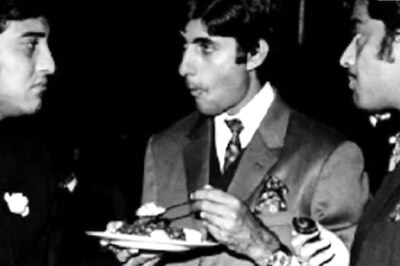
views
The advertisement for a bank uses the following punchline: Hum Hai Na (we are there for you). This bank also offers a credit card. And apparently, it's pretty easy to get one.
Shiju Joseph, 31, an engineer with a private firm in Delhi, was enticed and ended up with XYZ Bank's preferred credit card in April 2007.
He signed the credit card application form without bothering to read the terms and conditions.
Big mistake.
What happened next:
Shiju defaulted on his payment from October 2007 to March 2008. He made a part payment but due to some miscommunication, the amount was not recorded in his bill. In April 2008, the bank debited the outstanding amount from Shiju's savings account without informing him!
Shiju was left wondering how the bank could do this as his savings account was in no way connected to his credit card. So, he e-mailed the bank asking who gave them the authority to deduct the money. I reproduce below, in verbatim, the bank's reply:
In addition to the general right to set off or other right conferred by law or under any other agreement, XYZ Bank may, without notice, combine or consolidate the standing balance on the Card Account with any other account(s) which the Card-Member maintains with XYZ Bank and its Group Companies, and set-off or transfer money standing to the credit of such other account(s) in or towards the satisfaction of the card-member's liability to XYZ Bank under his/her Card Account. Hence the amount has been marked as lien in your savings account.
I expected the T&C to be mentioned in the credit card application form. So, I hopped across to a branch and got a copy of the form. I read it but to my surprise there was no such clause.
I was about to give up and look for another explanation, when the very first point (of 54 points in the T&C) caught my eye: To get the complete version of the credit card terms and conditions, please visit the web site.
The title of the page that I was reading was 'the most important Terms & Conditions' and not 'complete terms and conditions'. To get the complete T&C, I had to visit the bank web site. And to get to this page, I had to apply for a preferred credit card online!
I filled up personal details such as my educational qualifications, residential status, etc. Once I finished filling up the forms, I found a link to the T&C at the bottom of the page.
T&C went into 23 pages!
After spending much time mulling over some vague clauses, I came across the relevant clause on Page 17. So, when Shiju signed the credit card application form, he had agreed to all these 23 pages of T&C!
I spoke to lawyer Sunil Ramani to find out if Shiju has a legal recourse. Ramani explained that Shiju could try and file a complaint with the Consumer Guidance Society of India (CGSI). 'But I am not sure if there is much they can do,' he added. MV Kamath of the CGSI also confirmed the same.
You may argue that banks can't fool you by inserting such clauses in long and winding documents, but they are on the right side of the law. Your only recourse is to be cautious.
The basics before getting a card:
1. Don't ignore the fine print. Even if it's a tedious job but it can save you a lot of trouble, not to mention, money.
2. Whatever the reason, don't default on credit card dues because credit cards are nothing but unsecured loans and banks use every method to recover their money, while being legally correct at the same time.
So, do not be enticed by catchy punchlines!
Disclaimer: While efforts have been made to ensure the accuracy of the information provided in the content, the web site or the author shall not be held responsible for any loss caused to any person whatsoever who accesses or uses or is supplied with the content (consisting of articles and information).




















Comments
0 comment